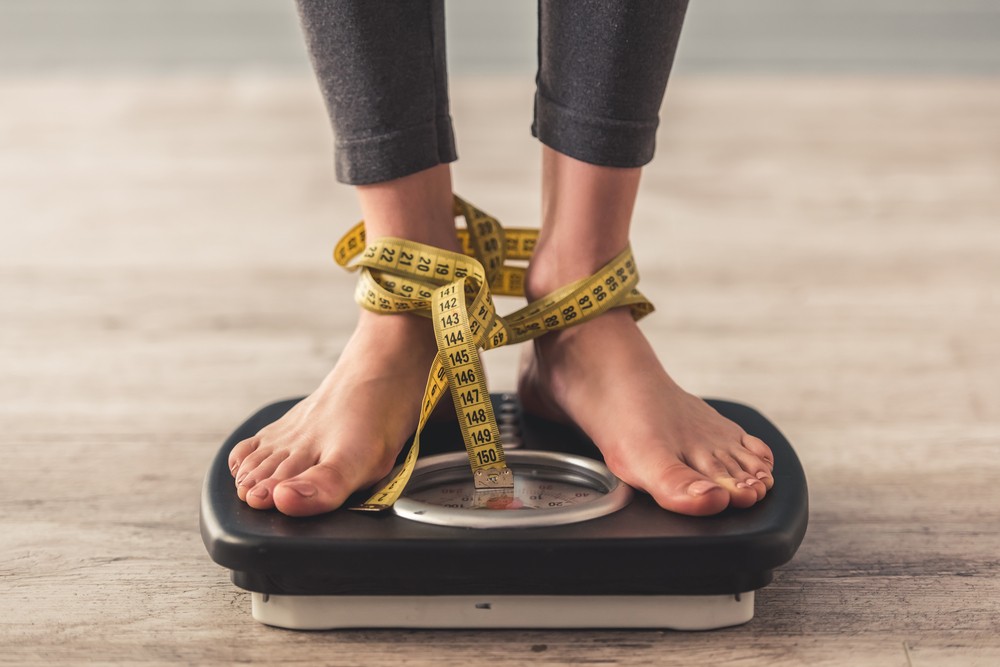The Daily Weigh-In
"We were somewhat surprised since our instructions were to maintain weight and not lose weight."
"It is possible that [overweight and obese] adults were less aware of their actual body weights at the beginning of the study, and seeing their weight on the scale perhaps prompted them to make some healthier choices or behaviours which led to actual weight loss."
"Daily self-weighing is quick, easy, and relatively low cost."
"For example, if someone likes to exercise, they can use that and adjust exercise levels to maintain weight. For a different person who doesn't like to exercise, they can use a different strategy."
"Maybe they exercise a little bit more the next day [after seeing a weight increase] or they watch what they're eating more carefully."
"The subjects self-select how they're going to modify their behavior, which can be effective because we know that interventions are not one-size-fits-all."
"Vacations and holidays are probably the two times of year people are most susceptible to weight gain in a very short period of time. The holidays can actually have a big impact on someone's long-term health."
Jamie Cooper, nutrition researcher, University of Georgia
"The fact that we have a US$70 billion weight-loss industry in the United States is a testament to the fact that weight loss is very hard."
"What works for one person may not work for another ... I would suggest that [daily weighing] is one more tool that can be added to the arsenal of behaviours people consider around the holidays to help prevent weight gain."
Sarah Bleich, Harvard T.H.Chan School of Public Health, Boston
"Having defined goals of metrics and feedback toward goal achievement is often motivating to those who are engaging in weight management."
Dr. Nanette Steinie, endocrinologist, nutrition expert, University of Maryland School of Medicine, Baltimore
 |
| Associate professor Jamie Cooper shows graduate student Liana Rodrigues how to take height and weight of a subject for clinical health measures with undergraduate Allison Jones in Cooper's clinical lab in Dawson Hall. Photo: Andrew Davis Tucker/UGA |
"People are really sensitive to discrepancies or differences between their current selves and their standard or goal."A newly-published study out of the University of Georgia has concluded that a daily weigh-in at home could prevent weight gain occurring during the winter holiday season, from mid-November to early January, coinciding needless to say with Christmas and New Year's and just about everyone's tendency to over-indulge in holiday food of the season. What inspired nutrition researcher Jamie Cooper and her colleagues to examine the issue of seasonal weight gain was that it was known that this winter period disproportionately contributes to annual weight gain.
"When they see that discrepancy, it tends to lead to behavioral change. Daily self-weighing ends up doing that for people in a really clear way."
"It works really well in the context of people's busy lives. The idea that people might already have all the resources they need is really appealing."
Michelle vanDellen, associate professor, UGA Department of Psychology
And even people who regularly exercise and who also indulge, are not spared. The results of their study published in the journal Obesity showed that participants who weighed themselves on a daily basis, thus receiving graphical feedback of weight changes, either managed to maintain, or even lost weight. Their study counterparts who failed to weigh themselves daily on the other hand, gained an average of around six pounds (2.7 kilograms) in that same period.
What their study emphasized was that people who began with a weight in the normal range for height remained within that range when they took the time to weigh in daily, to observe the results of their indiscreet eating during the holiday season. The study enlisted 111 adults between the ages of 18 and 65 who were instructed to maintain their weight throughout the 2017 - 2018 holiday season. Half of the study participants were randomly assigned to the weigh-in group, the other half abstained. After 14 weeks, researchers did a follow-up to determine who had succeeded.
According to Sara Bleich at Harvard, it would be difficult to ascertain whether the results owed entirely to daily self-weighing, since the instruction to maintain weight might have affected the behaviour of the participants. Though not involved in the study, she believes the data could represent a simple method whereby people could remain conscious of their weight during the holidays. And according to Dr. Steinle in Baltimore, the results suggest that using a scale daily could represent an intelligent way to boost adherence to a "healthy living" plan.
As for the study leader, Dr. Cooper feels the daily weigh-in could have popular appeal within the general public at large, since it is indeed a simple yet effective way to encourage people to remain fit during times when they are most likely to relax the standards of their normal eating patterns alongside their exercise regimen, leading them to consume more calories than they normally would at a time of seasonal lowered inhibitions.
 |
| For many, the holiday season is synonymous with indulgence and overeating, which can lead to weight gain. (Shutterstock/File) |
The paper, "Daily self-weighing to prevent holiday-associated weight gain in adults", can be viewed at https:/
Labels: Exercise, Food Intake, Health, Research, Weight

0 Comments:
Post a Comment
<< Home